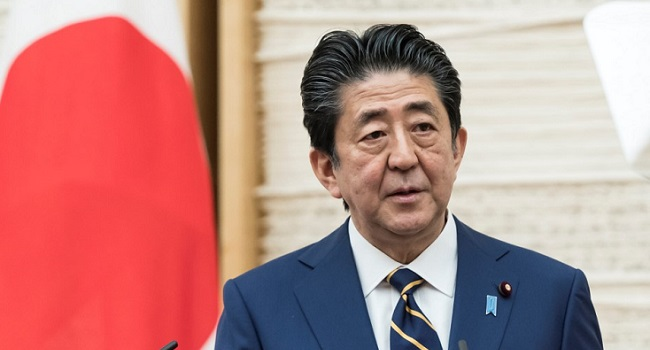Former Japanese Prime Minister Shinzo Abe has died after being shot during an event in Nara. Mr. Abe was shot twice while giving a speech, causing him to collapse, until his death this morning.
His assailant has been apprehended. Ex-Tokyo governor Yoichi Masuzoe said in a tweet that Mr. Abe, 67, was in cardiopulmonary arrest. In Japan, the term is frequently used before death is officially declared.
Mr Abe had a bullet wound on the right side of his neck, as well as subcutaneous bleeding under the left side of his chest, according to the Fire and Disaster Management Agency.
“Former prime minister Abe was shot at around 11:30 local time (02:30 GMT) in Nara and died in the early hours of Friday.” One man, believed to be the shooter, has been taken into custody. The condition of former prime minister Abe is currently unknown, “chief cabinet secretary Hirokazu Matsuno stated.”
“Whatever the reason, such a barbaric act can never be tolerated, and we strongly condemn it.”
Unverified social media videos appear to show paramedics huddled around Mr Abe in the middle of a street. He has apparently been taken to the hospital. When the attack occurred, Mr Abe was giving a stump speech for a candidate in Nara; witnesses said they saw a man carrying what they described as a large gun and firing from behind.
He immediately collapsed on the ground, bleeding. Security officers apprehended the attacker, who made no attempt to flee.
According to police sources, Mr Abe was “conscious and responsive” while being transported after the shooting, according to local news broadcaster NHK. Police also seized the attacker’s gun and identified him, according to the broadcaster.
NHK also stated that the suspect, identified as Tetsuya Yamagami, used a homemade gun.
He is believed to be in his forties and a Nara resident. According to local media, he is a former member of Japan’s Maritime Self-Defense Force, the country’s equivalent of the navy.
Mr Abe, Japan’s longest-serving prime minister, served for a year in 2006 and then again from 2012 to 2020 before stepping down for health reasons. He later admitted to having a relapse of ulcerative colitis, an intestinal disease.
While in office, he was known for his hawkish defense and foreign policy policies, and he has long sought to amend Japan’s pacifist postwar constitution.
He also pushed for an economic policy that came to be known as “Abenomics” – built on monetary easing, fiscal stimulus and structural reforms. He was succeeded by his close party ally Yoshihide Suga, who was later replaced by Fumio Kishida.
Incidents of gun violence are rare in Japan, where handguns are banned – and incidents of political violence are almost unheard of.
Prominent voices across the world have been quick to condemn the incident, with former Australian prime minister Kevin Rudd calling it an “attack on supporters of democracy”.
The US ambassador to Japan Rahm Emanuel said Mr Abe had been an “outstanding leader of Japan and unwavering ally of the US”, adding that the US was “praying” for his well-being.













